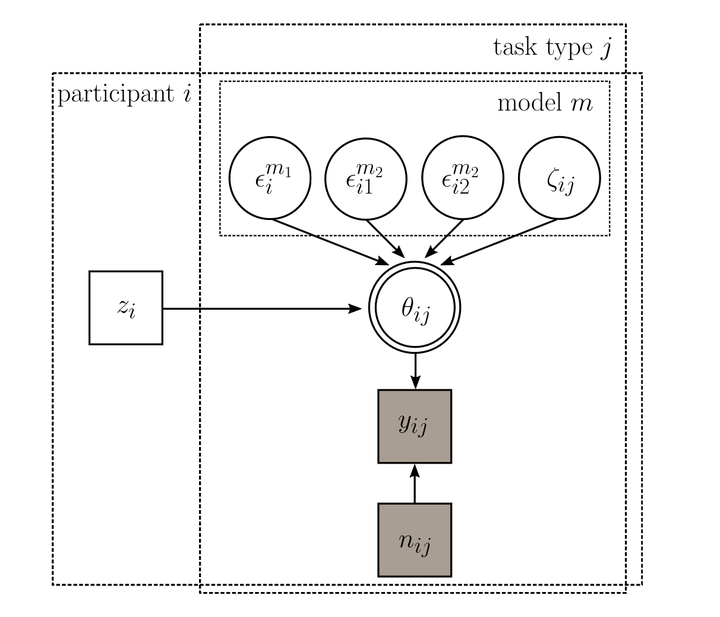
Abstract
Adaptive actors must be able to use probabilities as decision weights. In a computerized multi-attribute task, the authors examined the decisions of children (5–6 years, n = 44; 9–10 y., n = 39) and adults (21–22 y., n = 31) in an environment that fosters the application of a weighted-additive strategy that uses probabilities as weights (WADD: choose option with highest sum of probability-value products). Applying a Bayesian outcome-based strategy classification procedure from adult research, we identified the utilization of WADD and several other strategies (lexicographic, equal weight, naïve Bayes, guessing, and saturated model) on the individual level. As expected based on theory, the prevalence of WADD-users in adults was high. In contrast, no preschoolers could be classified as users of probability-sensitive strategies. Nearly one-third of third-graders used probability-sensitive strategies.